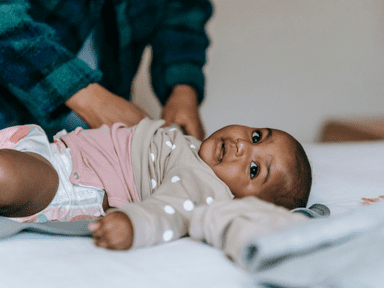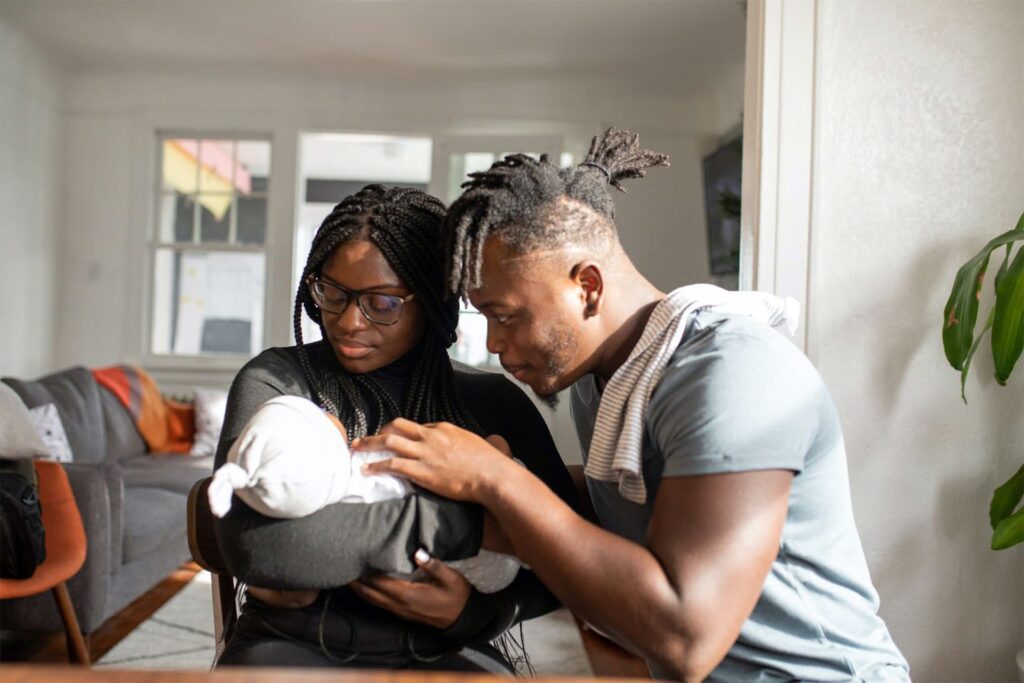My grandmother, Edith Farrington, died of a pregnancy-related complication at Queens General Hospital in New York City almost 100 years ago. Last week I learned on Facebook about the loss of a mother, one month postpartum, at that same hospital. Nowadays when a young person dies and leaves behind a toddler and newborn baby, the entire community is grieving, gathering support for the family, and holding demonstrations in front of the hospital. In the case of Denise Williams, they are protesting because no answers are forthcoming as to what led to her death. The social media videos of Denise’s aunt and sister and mother mourning her loss are heartbreaking.
In the several years since the rising rates of pregnancy-related deaths and complications in the United States were exposed, there have been many news reports about how Black mothers are 3 times more likely to die than their white counterparts. Now doctors and midwives are hearing Black women say, ‘I am afraid I’m going to die.’ Birth Justice activists want to stop the media capitalizing on shocking racial disparities in maternal health, calling the recent surge in stories highlighting Black women’s deaths ‘trauma porn.’ But even without mainstream media coverage, each tragedy ripples through the deceased mother’s community.
Media attention has added fear to the mistrust many Black people already feel towards medical providers. In April 2021, leaders in the Birth Justice movement pushed back against the stressful narratives Black birthing people hear – with factual information and love in their message:
Our actual risk of dying from a pregnancy-related cause, as a Black woman, is 0.0417% (41.7 Black maternal deaths per 100,000 live births) — to put that in perspective, our risk of dying is higher walking down the street or driving a car. Based on past and present injustices, we have every right to be scared, but make no mistake: that fear comes at a cost and Black birthing people are the ones paying the bill!
Indeed, the risk of death or near-death complications is very low. However, the actual numbers – 700 maternal deaths and 50,000 severe complications per year — represent a problem which is worsening. The good news is over 60% of the deaths are preventable. Major legislation to address the issue, the Momnibus, has been sitting in Congress for over a year. Given the lack of political will to make the necessary changes, and the denial of racism in medical care, it is not surprising that it might be a challenge to convince Black birthing people that their birth experience can be a joyful, powerful, and even spiritually uplifting experience. Especially considering that deaths of Black mothers are the tip of the iceberg of harm and disrespect Black people often deal with in all areas of the medical system. So how do we access health care without fear of mistreatment?
The love letter to Black birthing people gives valuable suggestions which are possible to implement in some parts of the US, but often impossible in rural and poor areas. Finding a culturally congruent (Black) or sensitive (non-Black) doctor or midwife may involve some trial and error and depends on insurance coverage. There is a shortage of Black midwives and doctors. And doctors of all ethnic backgrounds are not often trained to center the needs and preferences of their patients. In addition, the medical industrial complex puts production pressure on providers, which limits the time even the most compassionate clinician can spend listening mindfully to their patients.
Doula support improves birth outcomes and experiences for birthing people who can find and afford it. Group prenatal care and the midwifery model of care are also beneficial. Research shows these solutions positively impact maternal and infant health. While we await slow change in the provision of maternity services and the elimination of racism in medicine: the Black community can SOS, ‘Save Our Selves’ – as Home Birth Midwife Nubia Martin recommends.
In NYC, Doula collectives like Ancient Song Doula Services and Bronx Rebirth and Progress, give away diapers and food and offer free or low-cost doula support to birthing families. Midwives like Nubia Martin raise funds to cover the costs of home births for families who prefer autonomy or want to avoid hospital birth. Black women led community based prenatal care and birthing centers are growing in number, albeit slowly due to scarce funding.
Digital platformed initiatives, developed by Black women, include the Irth App with Yelp like reviews of maternity services, the Believe Her peer support app, and the Health In Her Hue App which connects to culturally competent providers. These can help steer consumers away from poor performing health care services and provide important mental health support.
A mixture of modalities from virtual workshops to social media is used by the Black Coalition for Safe Motherhood (where I am a principal) to promote its ACTT Curriculum in Black communities nationwide. ACTT is an acronym for the powerful and self-affirming steps mothers and their supporters can take to engage with providers. Knowing about patients’ rights to self-determination and respectful care, and practicing ways to assert those rights helps ACTT participants navigate maternity services with confidence.
- Ask Questions until You Understand the Answers
- Claim Your Space — Physical and Mental
- Trust Your Body
- Tell Your Story
In Black communities across the nation churches, women’s groups, sororities, nonprofits, doctors, midwives, and doulas are mobilizing to protect and empower birthing families. They are continuing the African tradition of Ubuntu — in recognition of our shared humanity – knowing that it takes a village for Black families to thrive with hope and joy.

